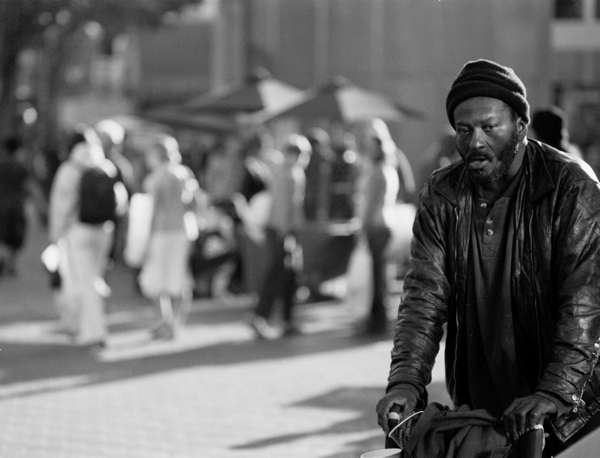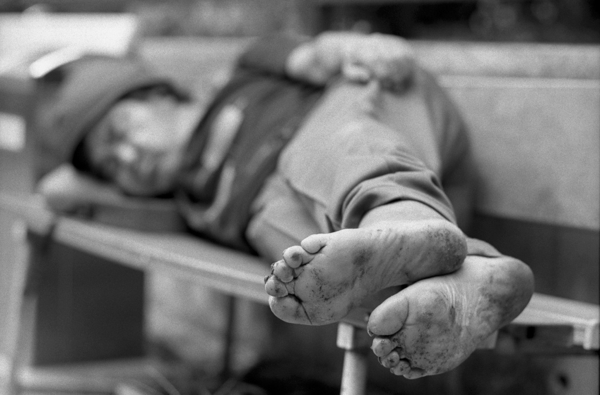|
Small, crafty, cowering, timorous little beast,
O, what a panic is in your little breast!
You need not start away so hasty
With argumentative chatter!
I would be loath to run and chase you,
With murdering plough-staff.
I'm truly sorry man's dominion
Has broken Nature's social union,
And justifies that ill opinion
Which makes you startle
At me, your poor, earth born companion
And fellow mortal!
I doubt not, sometimes, but you may steal;
What then? Poor little beast, you must live!
An odd ear in twenty-four sheaves
Is a small request;
I will get a blessing with what is left,
And never miss it.
Your small house, too, in ruin!
Its feeble walls the winds are scattering!
And nothing now, to build a new one,
Of coarse grass green!
And bleak December's winds coming,
Both bitter and keen!
You saw the fields laid bare and wasted,
And weary winter coming fast,
And cozy here, beneath the blast,
You thought to dwell,
Till crash! the cruel plough passed
Out through your cell.
That small bit heap of leaves and stubble,
Has cost you many a weary nibble!
Now you are turned out, for all your trouble,
Without house or holding,
To endure the winter's sleety dribble,
And hoar-frost cold.
But little Mouse, you are not alone,
In proving foresight may be vain:
The best laid schemes of mice and men
Go often awry,
And leave us nothing but grief and pain,
For promised joy!
Still you are blessed, compared with me!
The present only touches you:
But oh! I backward cast my eye,
On prospects dreary!
And forward, though I cannot see,
I guess and fear!
http://en.wikipedia.org/wiki/To_a_Mouse#cite_note-1
A Man's A Man For A' That
1795
Type: Song
Tune: For a' that.
-
-
Is there for honest Poverty That hings his head, an' a' that; The coward slave-we pass him by, We dare be poor for a' that! For a' that, an' a' that. Our toils obscure an' a' that, The rank is but the guinea's stamp, The Man's the gowd for a' that. What though on hamely fare we dine, Wear hoddin grey, an' a that; Gie fools their silks, and knaves their wine; A Man's a Man for a' that: For a' that, and a' that, Their tinsel show, an' a' that; The honest man, tho' e'ersae poor, Is king o' men for a' that. Ye see yon birkie, ca'd a lord, Wha struts, an' stares, an' a' that; Tho' hundreds worship at his word, He's but a coof for a' that: For a' that, an' a' that, His ribband, star, an' a' that: The man o' independent mind He looks an' laughs at a' that. A prince can mak a belted knight, A marquis, duke, an' a' that; Butan honest man's abon his might, Gude faith, he maunnafa' that! For a' that, an' a' that, Their dignities an' a' that; The pith o' sense, an' pride o' worth, Are higher rank than a' that. Then let us pray that come it may, (As come it will for a' that,) That Sense and Worth, o'er a' the earth, Shall bear the gree, an' a' that.
For a' that, an' a' that,
It's coming yet for a' that,
That Man to Man, the world o'er,
Shall brothers be for a' that.
http://www.robertburns.org/works/496.shtml
Quotes about FICKLE: http://quotes.dictionary.com/search/fickle
"Fame is a fickle food
Upon a shifting plate."
-Emily Dickinson
Even the most fickle are faithful to a few bad habits.
- Mason Cooley
The passion for money is never fickle.
- Mason Cooley
Fame is fickle, but Obscurity is usually faithful to the end.
- Mason Cooley
We are a puny and fickle folk. Avarice, hesitation, and following are our diseases.
Opinions are formed in a process of open
discussion and public debate, and where no opportunity for the forming
of opinions exists
,
there may be moods--moods of the masses and moods of individuals, the
latter no less fickle and unreliable than the former--but no opinion. -- Hannah Arendt
Young men have strong passions and tend
to gratify them indiscriminately. Of the bodily desires, it is the
sexual by which they ar
e
most swayed and in which they show absence of control...They are
changeable and fickle in their desires which are violent while they
last, but quickly over: their impulses are keen but not deep rooted.
-- Aristotle
Only when human sorrows are turned
into a toy with glaring colors will baby people become interested--for a
while at least. The people are a very fickle baby that must have new toys every day. -- Emma Goldman
Gratitude is a fickle thing, indeed. A
person taking aim presses the weapon to his chest and cheek, but when he
hits, he discards
it with indifference.
--Franz Grillparzer
All things counter, original, spare, strange;
Whatever is fickle, freckled (who knows how?)
With swift, slow; sweet, sour; adazzle, dim;
He fathers-forth whose beauty is past change:
Praise him.
-- Gerhard Manley Hopkins
adjective
1.
likely to change, especially due to caprice, irresolution, or instability; casually changeable: fickle weather.
2.
not constant or loyal in affections: a fickle lover.
Origin:
before 1000; Middle English fikel, Old English ficol deceitful, akin to fācen treachery, fician to deceive, gefic deception
Related forms
fick·le·ness, noun
un·fick·le, adjective
Synonyms
1. unstable, unsteady, variable, capricious, fitful. 2. inconstant. 1, 2. Fickle, inconstant, capricious, vacillating describe persons or things that are not firm or steady in affection, behavior, opinion, or loyalty.
Fickle implies an underlying perversity as a cause for the lack of stability: the fickle seasons, disappointing as often as they delight; once lionized, now rejected by a fickle public. Inconstant suggests an innate disposition to change: an inconstant lover, flitting from affair to affair. Capricious implies unpredictable changeability arising from sudden whim: a capricious administration constantly and inexplicably changing its signals; a capricious and astounding reversal of position.
Vacillating means changeable due to lack of resolution or firmness: an indecisive, vacillating leader, apparently incapable of a sustained course of action.
Dictionary.com Unabridged | | | | | | |














